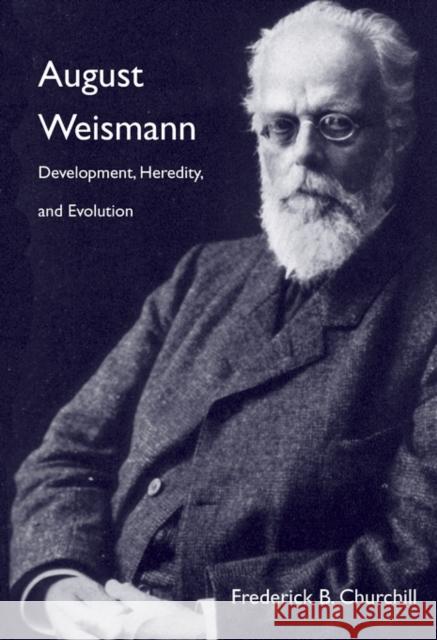August Weismann: Development, Heredity, and Evolution » książka
August Weismann: Development, Heredity, and Evolution
ISBN-13: 9780674736894 / Angielski / Twarda / 2015 / 720 str.
The evolutionist Ernst Mayr considered August Weismann "one of the great biologists of all time." Yet the man who formulated the germ plasm theory--that inheritance is transmitted solely through the nuclei of the egg and sperm cells--has not received an in-depth historical examination. August Weismann reintroduces readers to a towering figure in the life sciences. In this first full-length biography, Frederick Churchill situates Weismann in the swirling intellectual currents of his era and demonstrates how his work paved the way for the modern synthesis of genetics and evolution in the twentieth century.In 1859 Darwin's tantalizing new idea stirred up a great deal of activity and turmoil in the scientific world, to a large extent because the underlying biological mechanisms of evolution through natural selection had not yet been worked out. Weismann's achievement was to unite natural history, embryology, and cell biology under the capacious dome of evolutionary theory. In his major work on the germ plasm (1892), which established the material basis of heredity in the "germ cells," Weismann delivered a crushing blow to Lamarck's concept of the inheritance of acquired traits.In this deeply researched biography, Churchill explains the development of Weismann's pioneering work based on cytology and embryology and opens up an expanded history of biology from 1859 to 1914. August Weismann is sure to become the definitive account of an extraordinary life and career.











